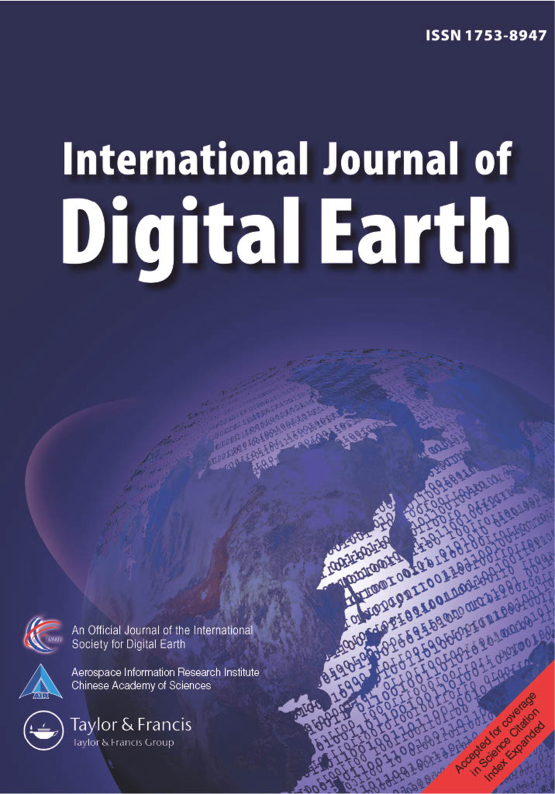Submit a Manuscript to the Journal
International Journal of Digital Earth
For a Special Issue on
Understanding and Building a Sustainable Urban Environment with Big Earth Data
Manuscript deadline
01 June 2025


Special Issue Editor(s)
Prof. Fang Chen,
International Center of Big Data for Sustainable Development Goals, China
[email protected]
Prof. Gensuo Jia,
Institute of Atmospheric Physics, Chinese Academy of Sciences, China
[email protected]
Dr. Rajib Shaw ,
Graduate School of Media and Governance, Keio University’s Shonan Fujisawa Campus, Japan
[email protected]
Dr. Bo Yu ,
Aerospace Information Research Institute, Chinese Academy of Sciences, China
[email protected]
Understanding and Building a Sustainable Urban Environment with Big Earth Data
The research on urban human settlements is increasingly becoming an important means and hot area for achieving the Sustainable Development Goals (SDGs), especially SDG11 (Sustainable Cities & Communities). However, it faces the challenges of data acquisition and integrated analysis in the fields of buildings, vegetation, water, atmosphere, disasters and human activities.
Big Earth Data is one of the key technologies for monitoring urban human settlements and promoting urban sustainable development, which is able to analyse massive earth observation data and provide a cross-field and interdisciplinary collaborative solution for the urban human settlements researches. The use of Big Earth Data to support the key technologies of urban human settlements monitoring can meet the realistic needs of urban sustainable development.
This collection will focus on exploring theories, methods and technologies of urban human settlements supported by Big Earth Data. Most importantly, this collection aims to enhance the scientific communities and the general public understanding of Big Earth Data science and technology and stimulate their enthusiasm for the spatiotemporal analysis and integrated management of urban human settlements. Original unpublished research articles and reviews on this topic are warmly welcomed.
Potential topics include (but are not limited to) the following:
- Methods and technologies for data acquisition and integration of urban human settlements using different observation platforms;
- New methods for monitoring the spatiotemporal pattern of urban human settlements;
- Analysis and evaluation models of urban human settlements;
- New methods and technologies for intelligent processing of massive urban human settlements data;
- Monitoring methods and evaluation models of SDG 11 indicators related to urban human settlements.
Looking to Publish your Research?
Find out how to publish your research open access with Taylor & Francis Group.
Choose open accessSubmission Instructions
The International Journal of Digital Earth is an Open Access and international peer-reviewed academic journal (SCIE with a 2022 impact factor 5.1) focusing on the theories, technologies, applications, and societal implications of Digital Earth and those visionary concepts that will enable a modeled virtual world.
Submissions must follow the instructions to authors outlined on the Taylor & Francis author guidelines page for International Journal of Digital Earth. Word templates are available on the web site and papers are typically 5000‐8000 words in length. IJDE uses double anonymous peer review.
Papers should be submitted online at the International Journal of Digital Earth's Submission Portal Site. New users should first create an account. Once a user is logged onto the site submissions should be made via the Author Centre. Please indicate the paper is submitted to Collection on “Understanding and Building a Sustainable Urban Environment with Big Earth Data” in the cover letter. Please also prepare a separate anonymous document containing an impact statement and a statement on the relevance of the work to the Digital Earth Concept and IJDE Submission Scope.
We look forward to your contributions. Please do not hesitate to contact the Guest Editors with any questions.